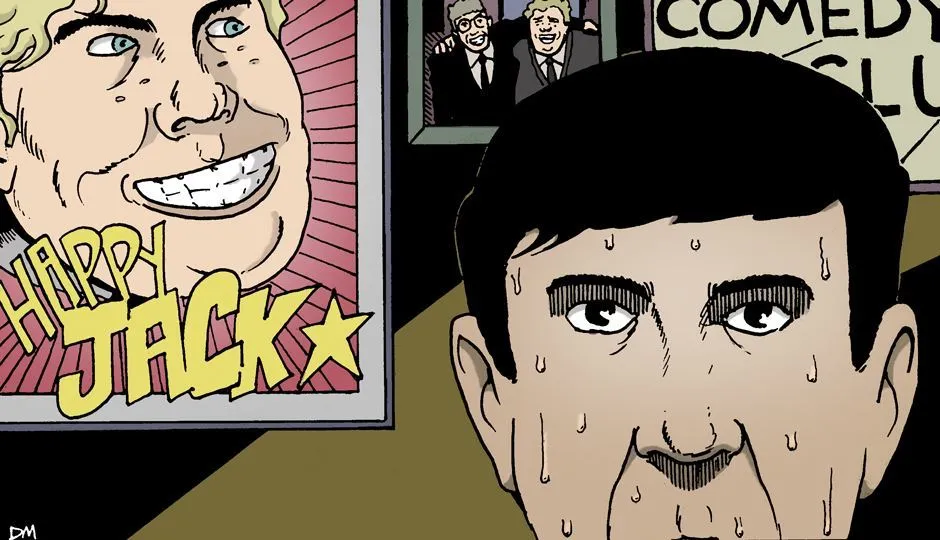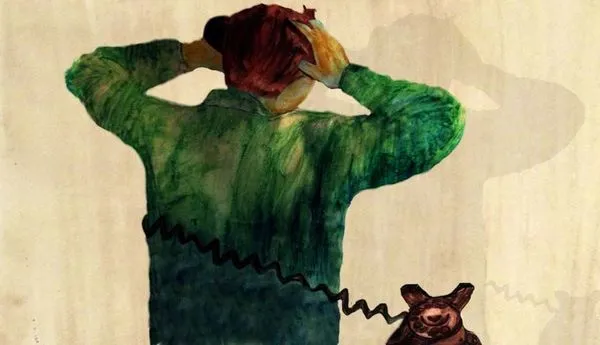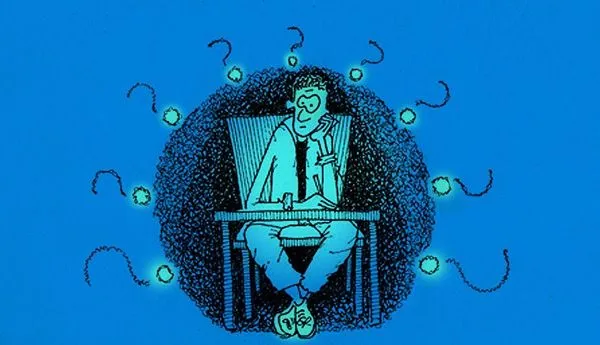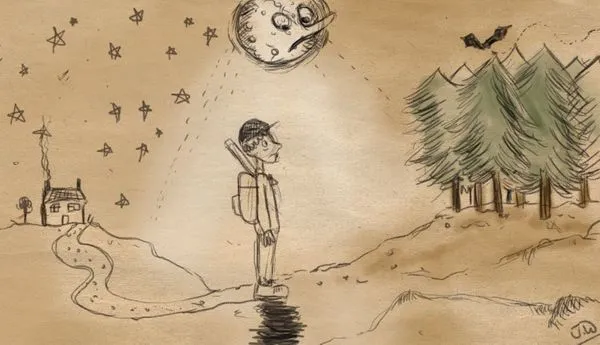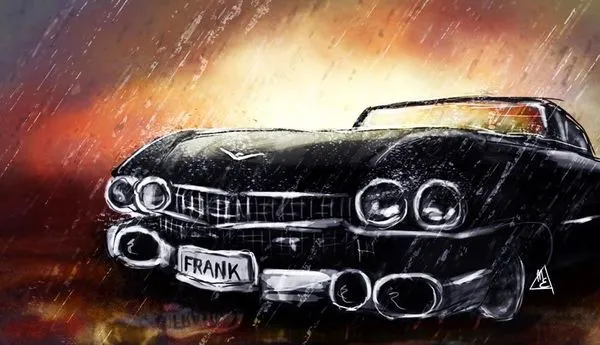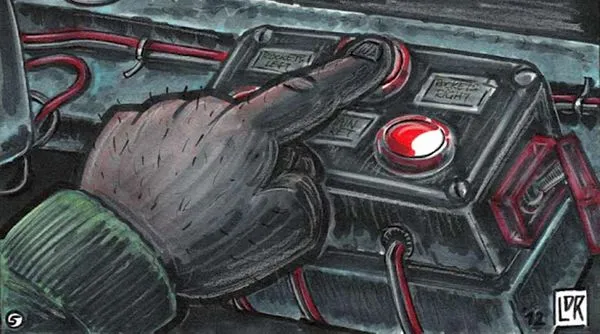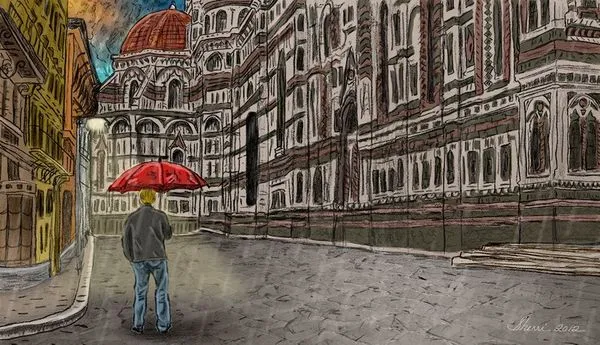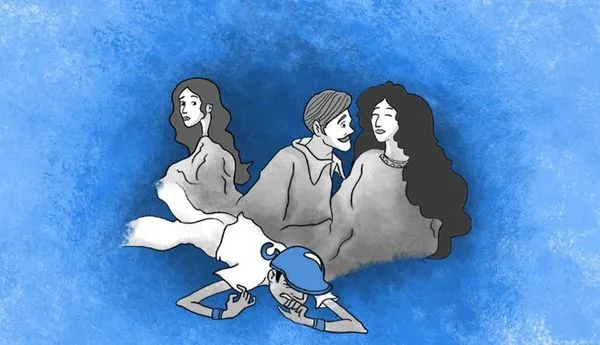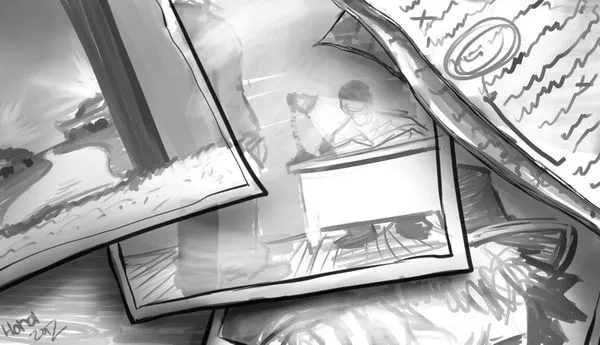Laugh It Off
Walter Giersbach | Daniele Murtas
Published on 2013-10-18
Happy Jack the comedian was the worst boss Bronsky ever had. Jack was overbearing — literally, at 295 pounds — and obnoxious. Bronsky kvetched to his agent and anyone outside the business who would listen to his stories of outrage. TV viewers didn’t know or care as long as Jack fired jokes like machine gun bullets.
Those were Bronsky’s gags making audiences laugh — the jokes he’d been ordered to produce at 2 a.m., or on Christmas Day, or from a hospital bed after his nervous breakdown.
Once, Happy Jack was flying into Bagram Airfield in Afghanistan to entertain the troops when the mortars started shelling the base.
“Bronsky, give me five jokes about mortars and airplanes,” Jack screamed over the telephone. “You got ten minutes.” (Bronsky had Jack quip, “I’ve seen tough audiences, but Al Qaeda terrorists are so demanding!”)
Bronsky told his analyst, “I’d kill myself if I wasn’t so anonymous. Trouble is, no one would notice. My brother always said he was an only child.”
The shrink didn’t laugh. Instead, he asked, “If you don’t like your job, why not quit? Find something fulfilling.”
“As bad as I’ve got it, the money’s great. And I pity Happy Jack. The schmuck is eating himself up alive. Did you know he’s got two detectives searching non-stop for his father? He’s obsessed with finding the father who deserted him.”
The analyst’s eyebrows rose.
“I kid you not. Jack’s father walked out when he was a child, and then his mother died.”
“And what? He’s taking out his frustration on you?”
Bronsky didn’t answer. His cell phone signaled Happy Jack was calling. “Be at my office at 2 p.m.,” Jack shouted. “Or you’re dead in this town. Two p.m. Not a minute later.” The phone went dead.
“Gotta go, Doc. It’s 1:30 and I have to be over on La Cienega in half an hour.”
Bronsky took the stairs to the parking lot two at a time, leaped into his Porsche, and zipped onto the street.
A new secretary — they were all “Hannah the Handmaid” to Bronsky — nervously ushered him into the office.
“Where’s Jack?” Bronsky demanded.
“You’re his 2 p.m. appointment? He’ll be right back. Don’t move. Do not move.” Fear dampened her face with a translucent pallor.
Half an hour later, Bronsky moved. He uncrossed his legs and slid over so the sun didn’t blind him. This was too much. Was Jack angry that the HBO script was flat? Had he forgotten that Jack got outraged over jokes about physical handicaps? Maybe he was rankled over the quip about Jesus curing the handicapped guys in the bar — except for the fire fighter defending his disability payments.
He looked at his watch. One hour and no Jack. “Miss,” he shouted, “where’s Jack?”
“He said, ‘Don’t move.’ He’ll be right back.”
Bronsky began to sweat. The sun was following him as he moved down the couch. Why did he put up with this persecution? Fame? Money? Should he die of a panic attack because he couldn’t come up with another Sarah Palin joke? He could write for Saturday Night Live. SNL’s producer had asked for a meeting.
His analyst’s words came back. “Why not quit?”
Bronsky jumped up, straightened his shirt, and turned to the door.
“Where are you going?” the new Hannah squealed. “What’ll I tell Happy Jack?”
“Tell him his father came to visit,” Bronsky said. “After all these years, Happy Jack couldn’t be on time to see his father?”
And with that kiss-off, Bronsky broke the magic spell that had held him prisoner in a golden cage.

